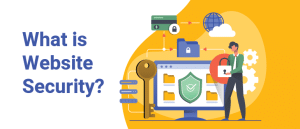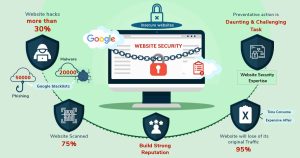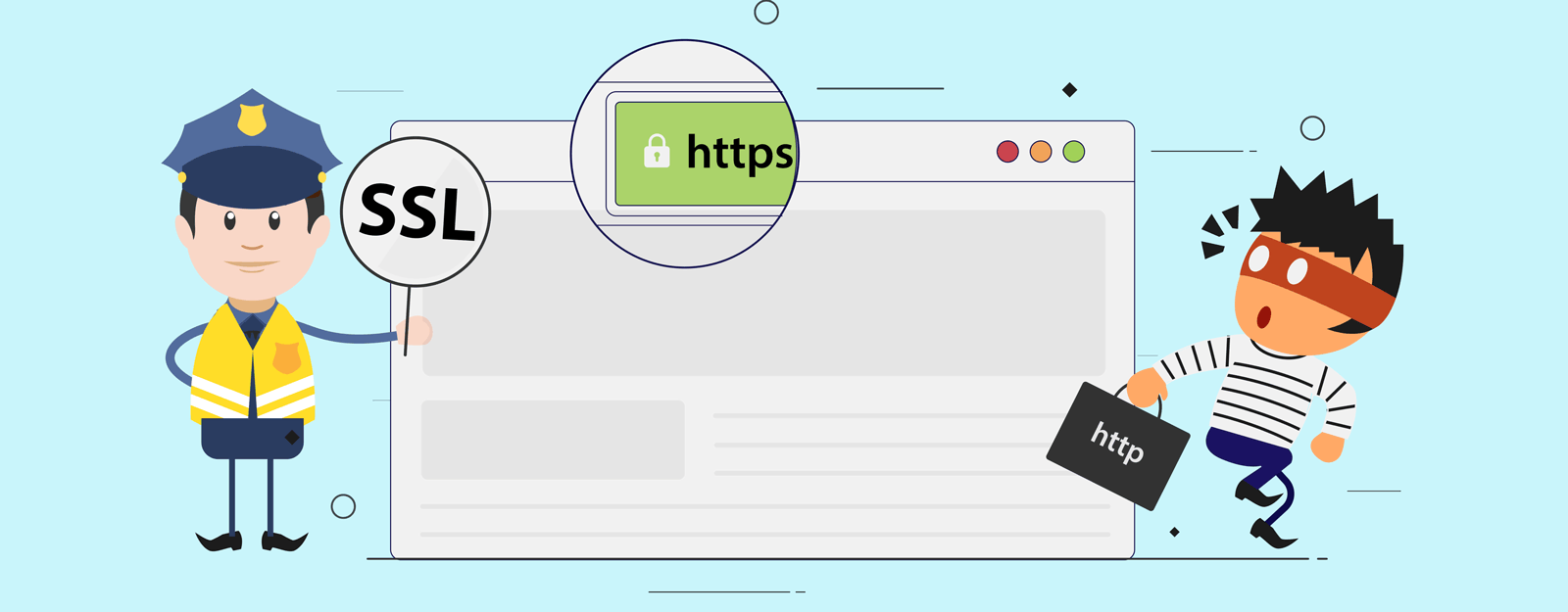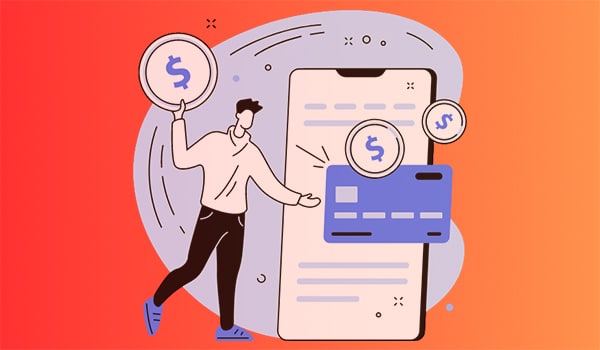The Importance of Website Security
In today’s digital world, it is essential for organizations and individuals to have a robust online presence. Whether you’re running an online store, a blog, or a portfolio, you need to take security seriously. This article delves into the numerous facets of website security, explaining its importance and detailing the ways in which a lack of it can damage your brand’s image, user trust, and search engine rankings. For website security see here.
What Is Website Security?
Website security refers to the procedures and actions used to secure a website and its data from various online threats and vulnerabilities. Attempts at hacking, leaks of sensitive information, infections with malware, and similar cyberattacks are all examples of such dangers. Safe websites take a wide variety of precautions to protect their visitors from harm.
The Impact of a Breach
Let’s pretend for a second that a cyberattack causes a data breach or compromises the functionality of your website. What repercussions do you possibly face? Let’s look more closely at some of the most profound effects:
1. Protecting User Data
Protecting users’ personal information is a top priority for many websites. When users engage with your website, they often share personal information, such as names, email addresses, and even credit card details for online transactions. This information can be stolen and used inappropriately by hackers if your website is not protected.
A major invasion of user privacy caused by a security breach might have serious legal and financial consequences for your company. There are severe penalties for violations of data privacy regulations in many parts of the world, including the General Data privacy Regulation (GDPR) in the European Union. Ensuring your website’s security not only protects your users but also prevents your organization from legal risk.
2. Building Trust and Credibility
Online businesses cannot thrive without customers’ complete confidence. Trusted websites have a greater chance of attracting repeat visitors and generating revenue. If you care about the safety of your visitors, it will show in the form of a secure website. It gives customers confidence that their information is secure and that they may use your site without worrying about fraud or identity theft.
However, if trust is broken, the relationship will suffer. When the security of your website is breached, word of the incident can swiftly spread and damage your brand’s reputation. Former site regulars may now be reluctant to return, costing you business and consumer trust.
3. Search Engine Ranking
Google and other search engines provide higher ranks to secure websites. Google has even revealed that it employs HTTPS as a ranking indication. It is more difficult for hackers to intercept data sent between the user and the website when the website uses HTTPS (HyperText Transfer Protocol Secure). As a result, the ranking in search engines improves.
On the flip side, search engines may demote insecure websites, which could reduce their organic traffic. Your internet visibility and discoverability may decrease as a result.

4. Protecting Against Malware
Malware, which stands for “malicious software,” is capable of penetrating your website and wreaking havoc. Malware has the potential to compromise the integrity of your site’s code, steal sensitive user information, reroute users to dangerous websites, or even transform your website into a malware distribution platform. Firewalls and malware scans should be part of your regular security routine to keep these attempts at bay.
When users encounter problems or security warnings due to malware on your website, it can be detrimental to your reputation. The trustworthiness of your site will also suffer if search engines designate it as dangerous.
5. Downtime and Loss of Revenue
When a website suffers a security breach, quick action is usually necessary to fix the problem. Because of this, the website can be taken offline temporarily. When your website goes down, it may have a devastating effect on your business, costing you clients and money.
Your company’s online reputation can take a serious hit if your website is compromised for an extended period of time and then exploited for fraudulent purposes. Long-term monetary losses and brand damage may arise from this.
6. Legal Consequences
Compliance with legal requirements is equally as important as protecting users and your website’s reputation. Various jurisdictions have passed legislation mandating the use of particular encryption techniques on the internet.
Failure to comply with these regulatory obligations can lead to substantial fines and legal difficulties. In the case of websites that collect and process user data, for instance, compliance with data protection rules may be required. You show your dedication to following the law by keeping your website protected.
Best Practices for Ensuring Website Security
Now that we know how crucial it is to protect our websites, let’s look at some tried-and-true methods:
1. Use HTTPS
The first step in safeguarding your website is making the switch from HTTP to HTTPS by obtaining an SSL (Secure Sockets Layer) certificate. Information sent between the user’s browser and your website is encrypted by this certificate to avoid eavesdropping.

2. Regularly Update Software
Keeping your website’s software, especially content management systems (CMS) and plugins, up to date is crucial. Developers regularly issue updates to fix security holes and address new threats. If you don’t upgrade, security holes in your website could be exploited by malicious users.
3. Implement Strong Password Policies
Passwords for user accounts and administrative access should be required to be strong and unique. Password complexity rules and multi-factor authentication (MFA) should be implemented for additional protection.
4. Conduct Regular Security Audits
Regular security audits can help detect vulnerabilities before they are exploited. Scan your website with a security tool or service to see how safe it is.
5. Backup Your Data
Backups of your data should be done regularly. Having a recent backup can help you swiftly recover and minimize downtime in the case of a breach or data loss.
6. Secure File Uploads
Make sure all user-uploaded files have been adequately screened for malicious software if your website supports such functionality. To stop harmful files from being posted, you should have rigorous restrictions in place.

Conclusion
A secure website is not only an option; it’s a must in today’s digital landscape. Loss of trust and money, as well as potential legal difficulties and data breaches, can result from ignoring website security. Website security is an investment that will pay dividends in the form of a protected user base, happy customers, and higher search engine rankings. Keep in mind that the price of a security breach will much outweigh the effort put into ensuring a safe website. Do not wait for a hack to occur before taking steps to secure your website.





